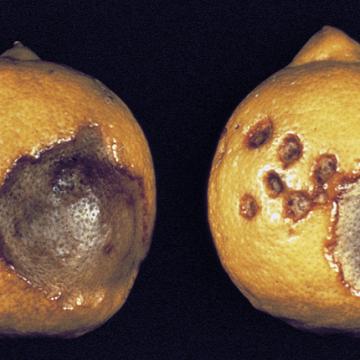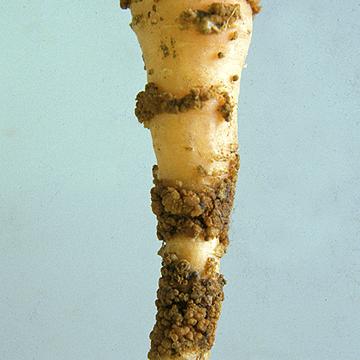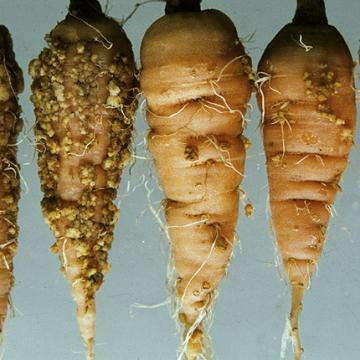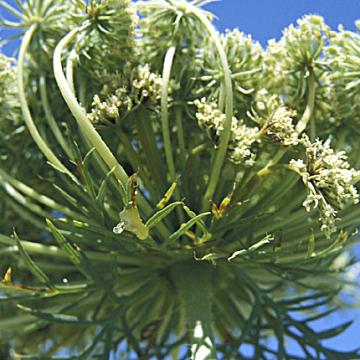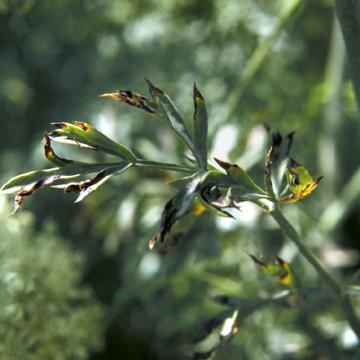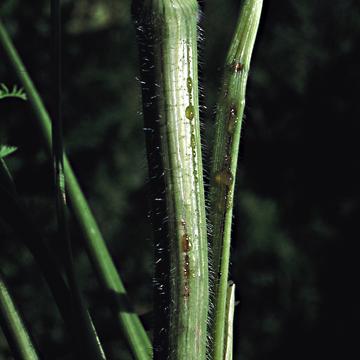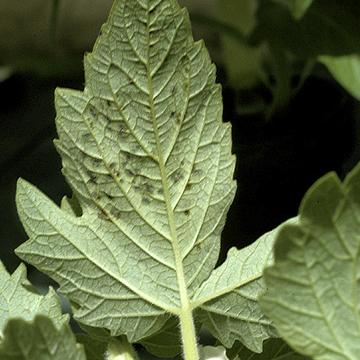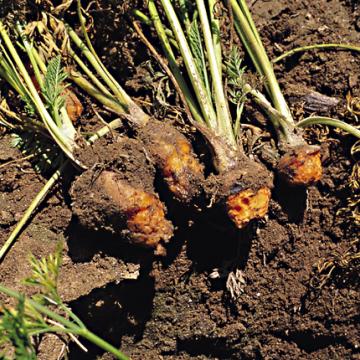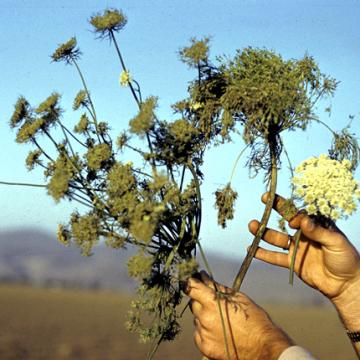DISEASE: Bacterial blast and black pit
HOST: Citrus (Lemon)
The term "black pit" refers to black lesions on fruit, which may be specks or large, sunken pits as seen here. They also may be light tan, later becoming reddish brown to black.
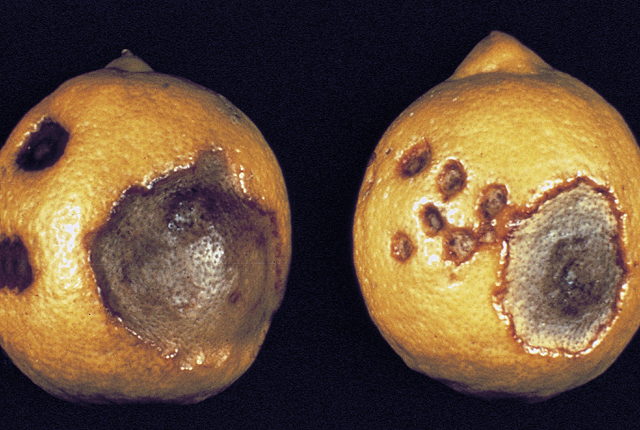
Bacterial blast and black pit | Citrus (Lemon)
DISEASE: Bacterial blast and black pit
HOST: Citrus (Lemon) (Citrus limon)
PATHOGEN: Pseudomonas syringae pv. syringae
SOURCE: J. Menge
DISEASE: Bacterial gall
HOST: Carrot
Root with many galls of different sizes.
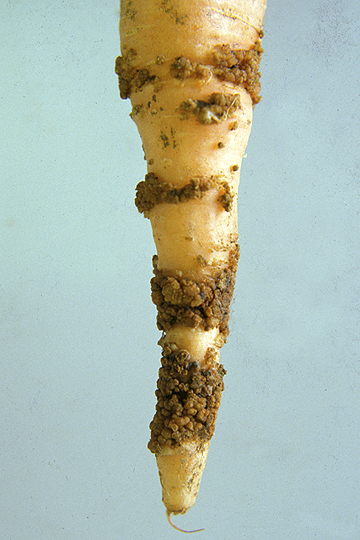
Bacterial gall | Carrot
DISEASE: Bacterial gall
HOST: Carrot (Daucus carota)
PATHOGEN: Rhizobacter dauci
SOURCE: H. Kuwata
DISEASE: Bacterial gall
HOST: Carrot
Galls caused from inoculation of injured roots (left two) and uninjured roots (center two). Uninjured, noninoculated root (right).
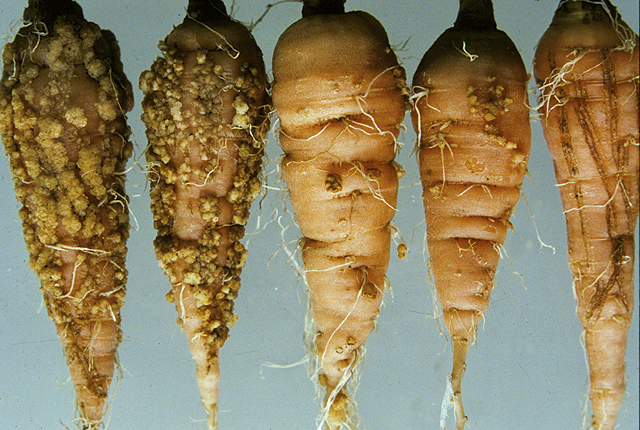
Bacterial gall | Carrot
DISEASE: Bacterial gall
HOST: Carrot (Daucus carota)
PATHOGEN: Rhizobacter dauci
SOURCE: M. Goto
DISEASE: Bacterial leaf blight
HOST: Carrot
Blight of flower parts.
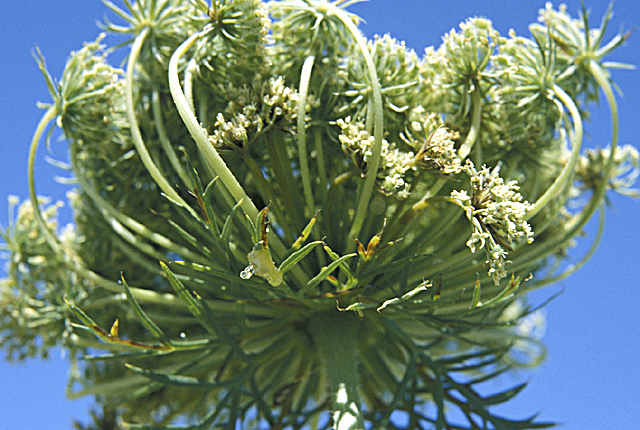
Bacterial leaf blight | Carrot
DISEASE: Bacterial leaf blight
HOST: Carrot (Daucus carota)
PATHOGEN: Xanthomonas hortorum pv. carotae
PATHOGEN SYNONYM: Xanthomonas campestris pv. carotae
SOURCE: N. Schaad
DISEASE: Bacterial leaf blight
HOST: Carrot
Leaf lesions begin as water-soaked spots that progress to small, yellow, angular spots and later expand to necrotic lesions with yellow halos.
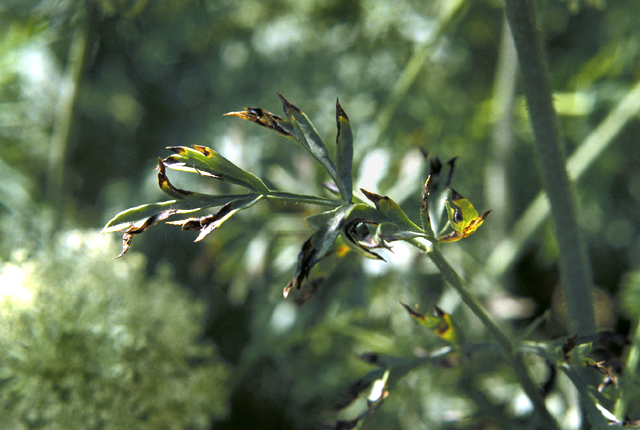
Bacterial leaf blight | Carrot
DISEASE: Bacterial leaf blight
HOST: Carrot (Daucus carota)
PATHOGEN: Xanthomonas hortorum pv. carotae
PATHOGEN SYNONYM: Xanthomonas campestris pv. carotae
SOURCE: N. Schaad
DISEASE: Bacterial leaf blight
HOST: Carrot
Bacterial ooze on flower stalk from systemic invasion of the pathogen.
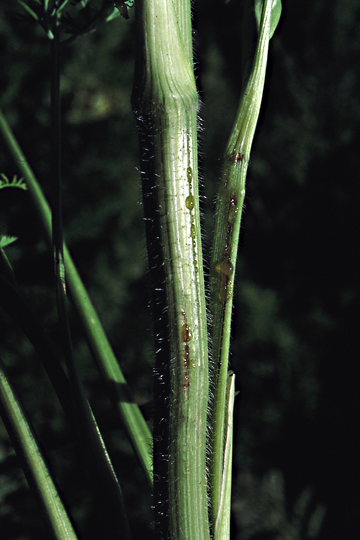
Bacterial leaf blight | Carrot
DISEASE: Bacterial leaf blight
HOST: Carrot (Daucus carota)
PATHOGEN: Xanthomonas hortorum pv. carotae
PATHOGEN SYNONYM: Xanthomonas campestris pv. carotae
SOURCE: APS
DISEASE: Bacterial leaf spot
HOST: Sesame
Leaf with water-soaked lesions.
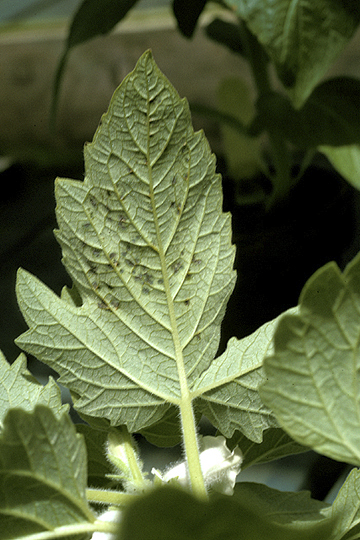
Bacterial leaf spot | Sesame
DISEASE: Bacterial leaf spot
HOST: Sesame (Sesamum orientale)
PATHOGEN: Pseudomonas syringae pv. sesami
SOURCE: M. Schroth
DISEASE: Bacterial soft rot
HOST: Carrot
Carrots with advanced stage of soft rot. Lesions on taproots are sunken and dull orange. The epidermis may stay intact in early stages of disease.
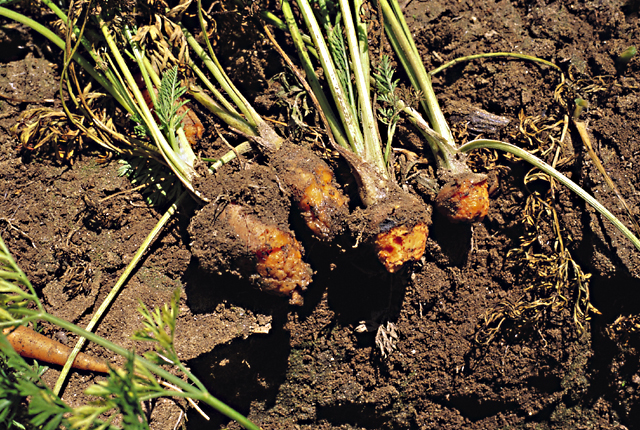
Bacterial soft rot | Carrot
DISEASE: Bacterial soft rot
HOST: Carrot (Daucus carota)
PATHOGEN: Dickeya sp.
PATHOGEN SYNONYM: Erwinia chrysanthemi
SOURCE: APS
DISEASE: Carrot yellows
HOST: Carrot
Flowers with shoot proliferation (witches’-broom) (left). Healthy flower (right). Virescence and phyllody of flower parts are common.
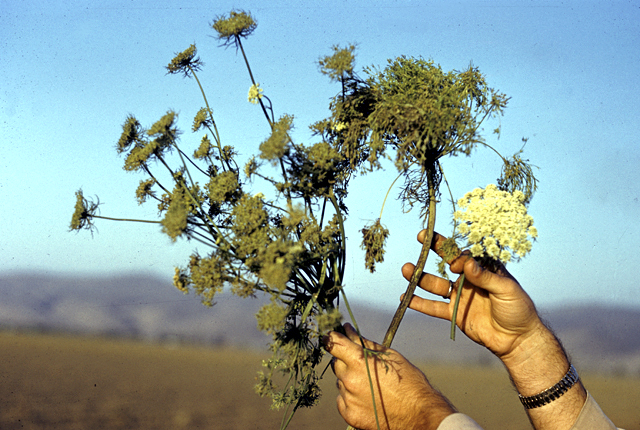
Carrot yellows | Carrot
DISEASE: Carrot yellows
HOST: Carrot (Daucus carota)
PATHOGEN: 'Candidatus Phytoplasma asteris'
PATHOGEN SYNONYM: Phytoplasma Aster yellows group
SOURCE: M. Schroth


